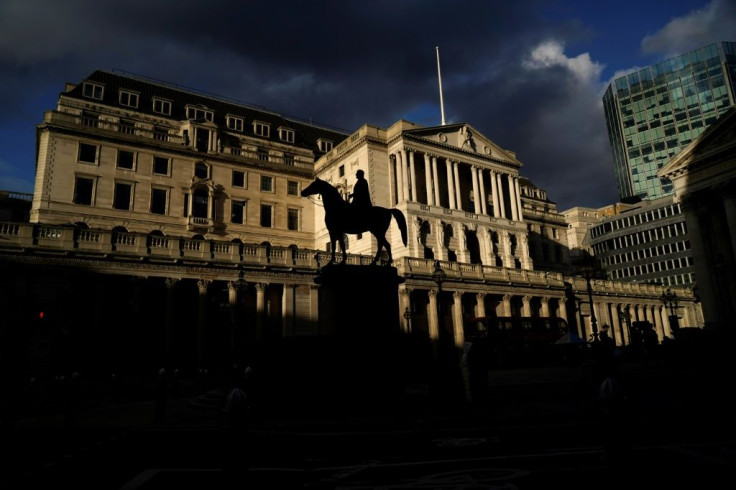Bank Of England Keeps Status Quo, Sees Improved Outlook
The Bank of England left record-low interest rates unchanged Thursday as it weighed Britain's vaccine-driven pandemic recovery alongside stubborn fears of rising inflation.
The British central bank said economic growth was "projected to recover strongly over 2021 towards pre-Covid levels", with the outlook improving as a result of the nation's rapid vaccination drive.
The bank's Monetary Policy Committee (MPC) voted unanimously to keep its key rate at 0.1 percent, where it was slashed to one year ago when the coronavirus crisis first erupted.
Policymakers also left their vast quantitative easing stimulus at ?895 billion ($1.2 trillion, 1.0 trillion euros), as they mulled the UK government's lockdown-easing plans but kept a wary eye on inflation worries.
Prime Minister Boris Johnson's latest phased plan to end England's current Covid-19 lockdown would deliver a "slightly stronger" rise in consumer spending than previously anticipated, the BoE said in a statement.
The BoE cautioned however that Britain's 12-month inflation rate, which stood at 0.7 percent in January, would approach the bank's 2.0-percent target level in the coming months due to energy price hikes.
BoE policymakers "will continue to monitor the (inflation) situation closely", the bank said in minutes from its meeting.
The near-term economic outlook was brighter due to the successful UK vaccination programme, and the impact of the US government's huge $1.9-trillion stimulus.
Britain has now given more than 25 million people a first dose of a Covid-19 vaccine as it targets a phased exit from current lockdown curbs.

Yet the BoE also cautioned over the "unusually uncertain" longer-term outlook as a result of the pandemic, which has so far killed more than 125,000 people in Britain in one of the world's worst outbreaks.
The coronavirus crisis sparked a 10-percent collapse in the UK economy last year -- the biggest slump in more than three centuries -- as Brexit also weighed.
The bank noted that recent UK budget measures, including a hike in taxation on business profits, could slow recovery.
Thursday's decision comes as top global central banks grapple with a rapid rise in bond yields, triggered by fears that stimulus-fuelled inflation could herald interest rate hikes as economies reopen.
The Federal Reserve had left interest rates unchanged on Wednesday -- but US government bond yields have nevertheless soared following its upbeat outlook.
The European Central Bank meanwhile pledged last week to ramp up the pace of its emergency pandemic bond-buying stimulus in a bid to soothe market jitters.
"The Bank of England had to walk something of a tightrope today -- on the one hand recognising the improved outlook for growth, while trying to reassure markets that interest rate are likely to stay low for some time," said Richard Carter, head of fixed income research at investment firm Quilter Cheviot.
"Like the Federal Reserve, they just about managed this difficult balancing act, but much will depend on whether the coming spike in inflation proves to be a temporary blip or something more permanent requiring higher interest rates.
"For now, markets should be reassured that central banks are still very much on their side."
© Copyright AFP 2024. All rights reserved.











